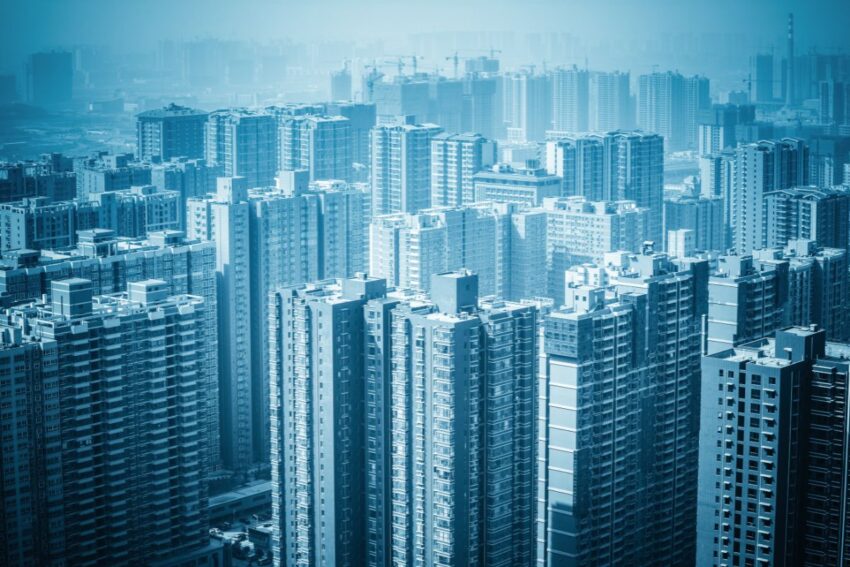Dubai, with its gleaming skyline dominated by architectural marvels such as the Burj Khalifa, offers a testament to what vision and ambition can achieve. Rising from the sands, the city’s transformation from a quiet fishing village to a bustling international hub has been nothing short of remarkable. Among the key drivers of this change has been the real estate sector. Commercial real estate in Dubai, especially, stands out as a beacon of growth, attracting global investors and entrepreneurs. This comprehensive exploration will unpack the intricacies of the commercial real estate market in Dubai, shedding light on its present and predicting its future.
1. Historical Underpinnings: Dubai’s Meteoric Rise
Dubai’s tryst with real estate began in earnest in the late 20th century. Recognizing the limitations of an oil-dependent economy, the emirate’s leadership embarked on a diversification strategy, with real estate and tourism at its core.
Over the next two decades, the skyline of Dubai began to change. The commercial real estate market saw a boom, with office spaces, malls, and hotels sprouting up to cater to a rapidly growing business ecosystem. Policies were put in place to attract foreign investment, and Dubai’s reputation as the Middle East’s business epicenter was solidified.
2. Today’s Landscape: A Kaleidoscope of Opportunities
The current state of commercial real estate in Dubai is a blend of traditional sectors with innovative offshoots:
- Office Spaces: While the demand for traditional offices remains robust, there’s a shift in dynamics. The rise of the digital age, startups, and the increasing number of multinational corporations have led to a surge in the demand for flexible and coworking spaces. Such spaces foster creativity, collaboration, and offer scalability.
- Retail Realms: The magic of Dubai’s retail is in its ability to offer more than just shopping. Malls like the Dubai Mall aren’t merely commercial spaces; they’re experiences. Even as the shadow of e-commerce looms, these hubs continue to attract footfalls by emphasizing experiential shopping, entertainment, and dining.
- Logistics and Warehouses: As a crossroads between East and West, Dubai’s strategic geographical positioning offers it distinct advantages. The growing stature of the emirate as a logistics powerhouse has, in turn, bolstered the demand for warehouses. These aren’t just storage spaces but are increasingly becoming tech-enabled, catering to the requirements of e-commerce giants and global supply chains.
3. The COVID Curveball: Challenges and Reinvention
The onset of the global pandemic brought unforeseen challenges. Like the rest of the world, Dubai’s commercial real estate sector grappled with uncertainties. However, this period also underscored Dubai’s resilience.
- Embracing the Digital: The pandemic accelerated the adoption of digital tools. Commercial spaces now prioritize digital infrastructures, recognizing the shift towards remote work and the increasing reliance on online platforms.
- Sustainability Takes Center Stage: The health crisis drew attention to broader global challenges, particularly sustainability. Commercial properties are now integrating green technologies, efficient waste management, and sustainable designs into their blueprints.
4. Gazing into the Future: Trends and Projections
Predicting the future is always fraught with uncertainties, but certain trends provide a direction:
- New Commercial Hubs: As Dubai continues its expansion and prepares for mega-events like Expo 2020, newer areas are gaining prominence. Districts like Dubai South and the Dubai Creek Harbour are expected to emerge as major commercial hubs, presenting investors with fresh opportunities.
- Flexible Financing: The traditional modes of financing real estate might undergo a transformation. Given Dubai’s commitment to fostering innovation, we can expect newer, more flexible financing models, opening doors for a wider range of investors in the real estate market.
- Attracting the World: Recent policy changes, including long-term visas and the option for 100% foreign business ownership, send a clear message: Dubai is open for business. Such measures are bound to buoy the commercial real estate sector by attracting a diverse pool of international investors.
5. Advice for Aspiring Investors
Dubai’s commercial real estate market is dynamic, making due diligence critical for potential investors. Some broad guidelines include:
- In-depth Research: Before making any investment decisions, it’s essential to have a grasp of the market’s nuances, trends, and potential risks.
- Embrace PropTech: The real estate sector globally is undergoing a digital transformation. Leveraging property technology can offer crucial insights, streamline transactions, and aid in efficient property management.
- Stay Informed: Regulations, policies, and market dynamics in Dubai are evolving. A well-informed investor is always better positioned to seize opportunities and navigate challenges.
Conclusion:
Dubai’s story, particularly in the realm of real estate, offers a masterclass in vision, ambition, and adaptability. As the emirate continues its journey, commercial real estate remains a pivotal part of its narrative. For those with an eye on the future, the Dubai commercial real estate market holds promise, presenting opportunities that are as diverse and dynamic as the city itself. With its unparalleled ability to reinvent and adapt, Dubai is poised to remain at the forefront of the global real estate scene for decades to come.


